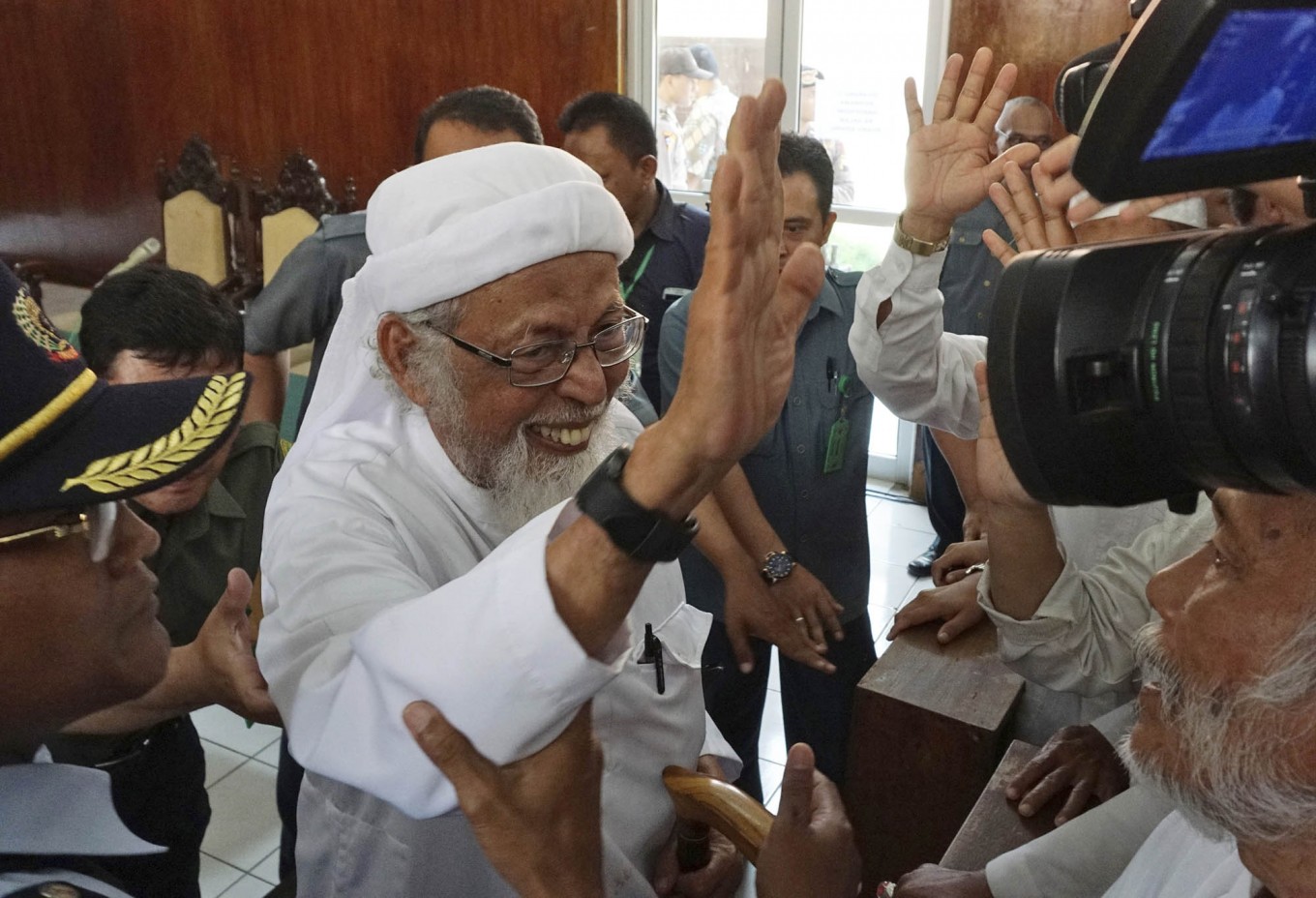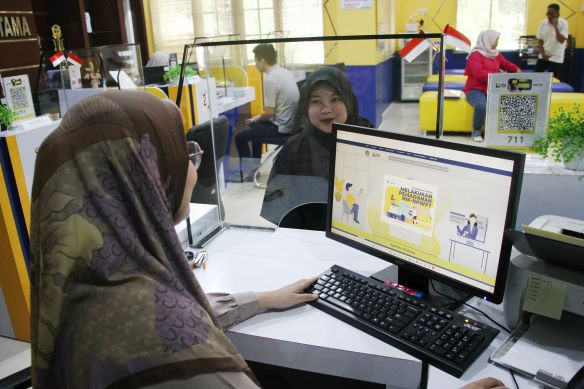Media on quest to find counter narrative to fight radicalism
He noted that social media poses challenges in counter extremism efforts. He said many radicals used social media to spread “their stories, their propaganda.” The internet is seen by some as an open marketplace for ideologies. “To fight those voices, we have to fight them on the internet,” Endy concluded.
Change Size
 Radical Islamic cleric Abu Bakkar Ba’asyir, center, waves at his supporters after his appeal hearing at the local district court in Cilacap, Central Java, Indonesia, Tuesday, Jan. 12, 2016. The Indonesian court heard the start of an appeal by the 77-year-old cleric who was sentenced to 15 years in jail in 2011 for setting up a terror training camp in the province of Aceh. (AP Photo/Agus Fitrah)
Radical Islamic cleric Abu Bakkar Ba’asyir, center, waves at his supporters after his appeal hearing at the local district court in Cilacap, Central Java, Indonesia, Tuesday, Jan. 12, 2016. The Indonesian court heard the start of an appeal by the 77-year-old cleric who was sentenced to 15 years in jail in 2011 for setting up a terror training camp in the province of Aceh. (AP Photo/Agus Fitrah)
Indonesian media outlets have learned to avoid being easily exploited by radical groups, media pundits have said.
Speaking at a discussion during the 2016 Jakarta World Forum for Media Development, The Jakarta Post editor-in-chief Endy Bayuni highlighted a mistake in the media’s initial treatment of radicals. In early 2000s, Indonesian media gave a lot of attention to radicals, most notably cleric Abu Bakkar Ba’asyir, leader of Al-Qaeda-linked terror group Jemaah Islamiyah (JI).
“We turned him into a superstar. The radicals and the extremists were exploiting us,” Endy told the participants at the forum.
The forum focused on the role the media plays in strategic communication against violent extremism.
Endy said that nowadays, the media was undertaking a new strategy to counter the radicals. “We only broadcast news when they break loose, not when they are spreading propaganda,” he said.
Furthermore, he argued that media should play a key role in “filtering the voice of radicals.”
Endy added that even though the Post, for instance, does not give space for radicals, “the radicals are now media savvy.”
He noted that social media poses challenges in counter extremism efforts. He said many radicals used social media to spread “their stories, their propaganda.”
The internet is seen by some as an open marketplace for ideologies.
“To fight those voices, we have to fight them on the internet,” Endy concluded.
Voicing similar concerns, Courtney Radsch, the advocacy director of the Committee to Protect Journalists, said counter-narrative efforts by media outlets faced an uphill task with the focus on the Islamic State (IS) group.
“ISIS media strategy is very sophisticated,” she said.
“All the literature reviews show that government-funded counter-narratives are ineffective,” argued Radsch, particularly on government-sponsored or controlled media.
Furthermore, these failures “discredit the idea that the media is independent.”
Radsch mentioned a significant problem in the government’s counter-narrative efforts, which is the belief that “extremist views are not allowed to be expressed.”
She argued that online censorship only pushed radicals to private and encrypted chatrooms, thereby not allowing journalists and governments to see what is going on.
According to Radsch, a more sensible approach would be to focus not “on content, but on the perception of content”. (dmr)









